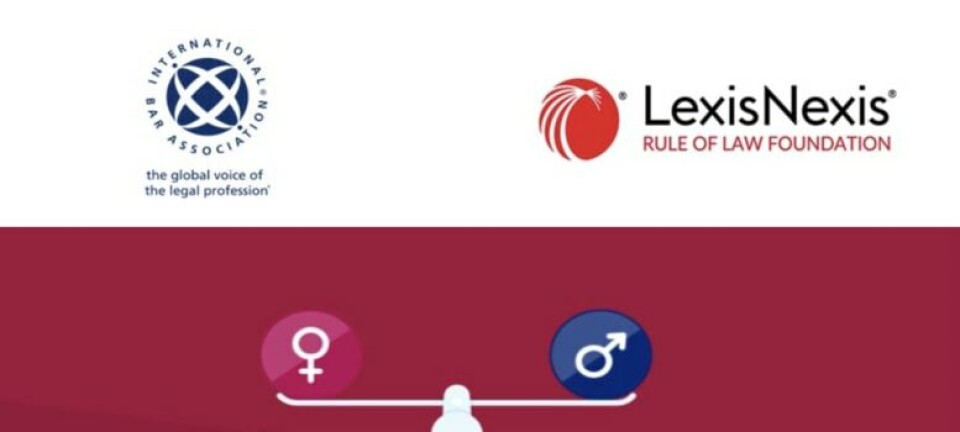The project, named “50/50 by 2030”, in reference to a UN sustainable development goal on gender equality, will examine the root causes of leadership disparities between male and female lawyers, the impact of diversity initiatives intended to address the issue, while also supplying professional guidance.
All sectors of the legal profession – from private practice to in-house, as well as the judiciary – will be covered by the survey, spanning 15 countries, including African nations, in identifying barriers to, and opportunities for, equal representation for women as general counsel, senior partners, government legal advisers, and as judges at all levels.
The project is being supported by Lexis-Nexis’s Rule of Law Foundation, a longstanding partner of the IBA, which has a strong African presence, thanks to its Africa Regional Forum. It will assess evidence from stakeholders every three years, from 2021 onwards, and is the latest survey to look at law and gender issues. Previous IBA surveys assessed bullying and sexual harassment in law firms, and the representation of women in business law, both of which were well received.
Zimbabwe’s Sternford Moyo, the IBA president, said action was needed to address the issue, adding that understanding and appreciating the need for diversity and equality also required positive change in this area, which he had made a presidential priority. He said: “We cannot continue to have so few eminently qualified and capable women denied parity in senior roles.”
The initiative was welcomed by commentators, with Rashida Abdulai, the founder & Chief Executive at Strand Sahara, which supports Africa-focused businesses, saying that the root causes of such disparities were important and arguably wider than gender alone.
Abdulai said: “Our profession suffers from a high degree of dissatisfaction from both male and female members, with the latter bearing the brunt. A shake up is well overdue.”
She noted: “When it comes to gender parity, many African firms I have worked with do better than their counterparts in the rest of the world”, which she ascribed to the more positive workplace cultures of African firms.
Speaking exclusively to Africa Legal, senior vice chair of the IBA’s African Regional Forum, Nankunda Katangaza, agreed the IBA initiative was welcome, but added the issue of gender disparities was also a societal one.
Katangaza said, echoing initiatives undertaken by outgoing Norton Rose Fulbright Chief Executive, Peter Martyr, to address gender disparities within his own firm: “As long as women’s roles in the domestic sphere [were] largely unchanged, [barriers] to women’s achievements in the firm, and the glass ceiling would remain.”
Such sectoral initiatives could only address such barriers only so far, she suggested. She added: “As long as parental leave, pay and other incentives to equalise men and women’s choices in the domestic sphere, then gender parity efforts by law firms, corporates, and the judiciaries will remain constrained,” while gender inequalities had also arguably been exacerbated by the impact of lockdowns, globally – including in Africa. Her Forum, she said, had teamed up with the IBA Women Lawyers Interest Group to host two webinars looking at these issues in greater detail.
Africa Legal shares the IBA’s strong commitment to Women in Law, as Ifeoluwa Ogunbufunmi has written on this website, which also showcases the work of African women leaders. In March 2020 Africa Legal supported the Next Hundred 100 #FaceTheFuture photography campaign partnering with Webber Wentzel to host the South African chapter. The campaign showcased inspirational women in the law and the men that support them.
To join Africa Legal's mailing list please click here

